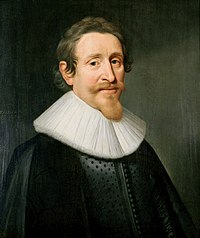
Photo from wikipedia
This essay shows how Hugo Grotius (1583–1646) made use of classical poetry and drama, especially that of Lucan, Euripides, and Seneca, in developing his thought on the treatment of captives,… Click to show full abstract
This essay shows how Hugo Grotius (1583–1646) made use of classical poetry and drama, especially that of Lucan, Euripides, and Seneca, in developing his thought on the treatment of captives, prisoners of war, and slaves, and argues that his method was humanist and philological. From his early publishing projects to “The Rights of War and Peace” (De Iure Belli ac Pacis, 1625), Grotius developed an account of common social experience, a formal mechanism to represent dialogue with difference, and a refusal to apply categorical distinctions positing natural difference among peoples. His engagements with classical poetry and drama are thus an important piece of the story of early modern thought.
Journal Title: Renaissance Quarterly
Year Published: 2023
Link to full text (if available)
Share on Social Media: Sign Up to like & get
recommendations!